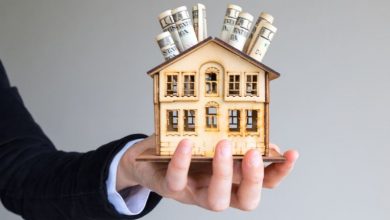EVALUATING PROPERTY

Fill out the property profile for each property you want to consider to record your first impression and the details you noticed. After selecting the area and surrounding environment, the attribute can be evaluated. Limit what you think has potential. It takes a lot of time to sprint on the track, open a house and make an appointment to see the house. It’s a lot like prospecting, and it’s better to record what you see instead of relying on your memory. In this chapter, you will see the property overview of houses and residences provided in two ways. The short version overview and the most detailed complete overview. Use these configuration files to collect information about each attribute in an orderly manner. Of course, you should look for as many attributes as possible and keep basic information for comparison. This is where the property comparison worksheet can be of great help. There is a comparison table for individual houses and residences. By comparing the specific details of each attribute, you can better understand the advantages and disadvantages of each attribute. Property information descriptio n Whether you are a list generator or not, you must develop this skill when assessing your ownership. If you are investigating a possible investment, there may not be much information, and it is better if you keep recording it.
We have designed two types of property profiles, one for the quick version and the other for a complete evaluation. Both discuss very important aspects that you want to consider. The “Comprehensive Attribute Summary” is more than twice the size of the “Attribute Summary Fast”; therefore, please choose the profile that best suits you and the attributes you evaluate. There is no hesitation that you will have a list on the property, but this is not enough to make a “buy” decision. Use the configuration file to confirm the general information on the list, but you can make your own measurements in the room and evaluate everything you see. Download the digital version or copy or scan these complete fixed profile profiles and customize them according to the type of housing in your area. For example, if the house doesn’t have a basement, delete the category. This will make them more effective to use. Before arriving at the hotel, please spend some time researching the items on your profile page to make a list applicable to you and your observation style. Record the address and date you visited each property. You may find that only a mysterious “OK” is needed. Or, you can discuss projects that are of interest or concern to you. Use this area to write something that looks particularly noticeable or suspicious. Use the “Image Capture Reference” in the right column to accompany the images or videos you recorded with your digital camera or mobile phone. Since most digital cameras will call up the photo when it is taken, you can write the photo ID when walking around the hotel. Then download the image to your PC and place it in a folder for easy reference. If you download an MS Word document or make it yourself, you can import the image into the form and create a complete document with comments and pictures. A digital voice recorder and voice-to-text software can be used to assess ownership, and the text can be edited on the computer and placed in the configuration file along with the image for further analysis. If they are long to fit in the “Comment” section, please block them and quote them in the right column. These profile pages can become the central repository for all collected information. It is a good idea to extend the profile to obtain information from brokers and other sources, especially information about the potential to improve the property.




